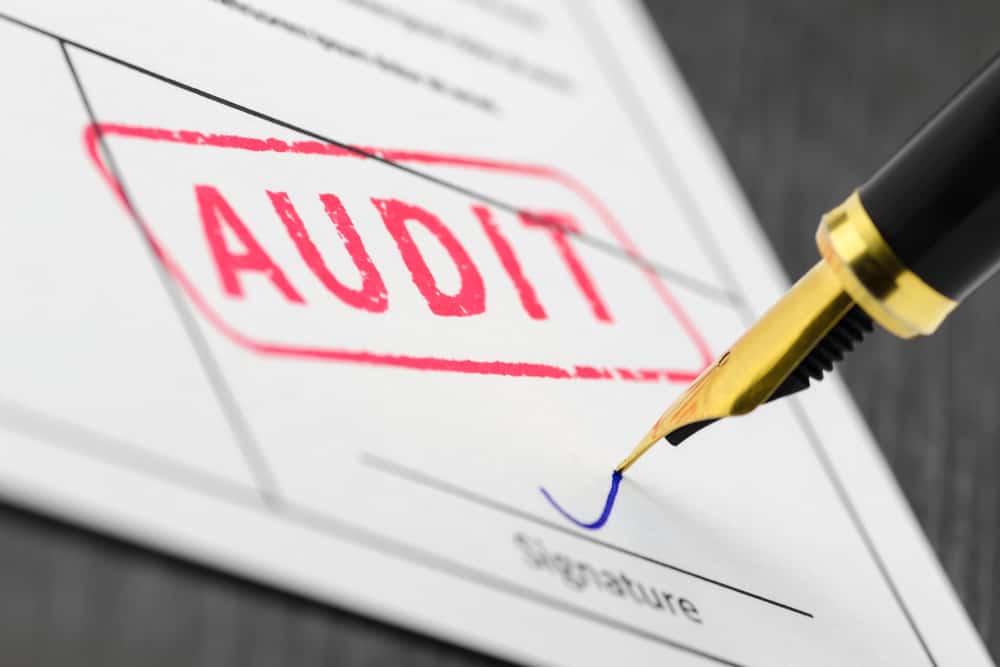Learn about the significance of auditing in UK accounting, its types (internal, external, HMRC), and why it matters for financial accuracy and compliance.
What is Auditing?

Auditing in accounting is the systematic evaluation of transactions and financial statements. This is done to verify their accuracy, trustworthiness, and compliance with HM Revenue and Customs (HMRC) rules and regulations. The authority in charge of tax affairs in the UK is HMRC, not the Internal Revenue Service (IRS) in the United States.
An Internal Revenue Service audit is a review of a company’s financial statements. HMRC, on the other hand, is in charge of tax collection and administration in the United Kingdom. It is not directly involved in auditing financial statements. However, HMRC can conduct tax audits to verify that businesses follow tax laws and declare their taxable income appropriately.
Auditing is important in reassuring stakeholders that the provided financial information is legitimate. One of the main purposes of auditing is to assess an organization’s financial statements.
Financial statements are formal documents that demonstrate a company’s financial performance. They usually consist of a balance sheet, an income statement, and a cash flow statement. Auditors examine these financial accounts to see if they are correct.
Who Needs An Audit?
The need for an audit is determined by a company’s legal status and size. Certain businesses are required by law to undertake a financial audit. This is done to verify the accuracy and dependability of their financial accounts. It’s also to reassure stakeholders. Audits can give useful information for HMRC tax assessments.
Public limited companies (PLCs) must have their financial records audited by law. The purpose of this is to strengthen the transparency of financial data. The information is made available to investors, shareholders, and the general public. The audit report given by independent external auditors offers confidence in the accuracy of financial statements.
Financial audits of large private companies may also be required. There are established thresholds depending on certain factors. These include turnover, balance sheet total, and number of employees. When a company crosses these thresholds, it has to have its financial accounts audited. Financial institutions are also required to get regular audits.
Even if your company is not legally forced to conduct an audit, there may be practical reasons to do so. Audits can improve the accuracy of financial information and give useful information on financial health.
Different Types of Audits
Internal Audits
An internal audit is a function of independent analysis that evaluates internal controls, risk management, and auditing standards. Internal auditors assess and improve the efficacy of internal controls.
These internal auditors provide suggestions for improvement in the auditing process. They evaluate financial operations as well as compliance. Internal audits verify that internal controls are adequate and that financial reporting is accurate.
An internal audit helps with tax assessments. Internal auditing entails conducting fieldwork, analyzing data, and issuing audit reports.
External Audits
An external audit is an examination of a company’s finances and records by external auditors. These are qualified professionals.
They evaluate an organization’s compliance with regulations within the external audits. An external auditor adheres to established audit procedures, such as evaluating financial documents and gathering evidence to make an opinion on the external audit.
HMRC Audits
HMRC conducts these audits to ensure tax compliance. To check the accuracy of tax returns, HMRC has the power to inspect tax records, financial accounts, and other relevant documents. Any possible tax obligations or inconsistencies will be evaluated.
HMRC audits may cover a wide range of tax issues. These can include income tax, corporate tax, and value-added tax (VAT). Audits are conducted to ensure that taxpayers are meeting their tax responsibilities.
Businesses must keep accurate and full records. During the audit, it’s beneficial to collaborate with HMRC. Using experienced tax consultants can assist in ensuring compliance with tax legislation. If you are chosen for an HMRC audit, this will make the process go more smoothly.
FAQs
What is the purpose of an audit?
An audit’s purpose is to evaluate and offer assurance of the accuracy and compliance of an organization’s financial information.
Why is internal control important in auditing?
Internal control is essential in auditing because it protects assets and ensures accurate financial reporting in a business.
Conclusion
Auditing can be a tedious procedure. Hiring an accountant can make the process a lot simpler. As consultant auditors, they maintain correct financial information and perform forensic audits to uncover fraud. Accountants are essential to the transparency of a company’s financial records.
Sources
https://www.brightnetwork.co.uk/career-path-guides/accounting-audit-tax/what-is-audit-accounting/
https://www.menzies.co.uk/helping-you/audit-compliance/what-is-an-audit/different-types-audit/
https://www.tax.uk.com/about-us/blog/what-audit-and-what-do-auditors-do/